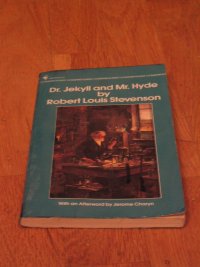Little Otik
http://www.filmforum.com/archivedfilms/otikshow.html

IN the morning we went up to the village and bought a wire rat-trap and fetched it down, and unstopped the best rat-hole, and in about an hour we had fifteen of the bulliest kind of ones; and then we took it and put it in a safe place under Aunt Sally's bed. But while we was gone for spiders little Thomas Franklin Benjamin Jefferson Elexander Phelps found it there, and opened the door of it to see if the rats would come out, and they did; and Aunt Sally she come in, and when we got back she was a-standing on top of the bed raising Cain, and the rats was doing what they could to keep off the dull times for her. So she took and dusted us both with the hickry, and we was as much as two hours catching another fifteen or sixteen, drat that meddlesome cub, and they warn't the likeliest, nuther, because the first haul was the pick of the flock. I never see a likelier lot of rats than what that first haul was.
We got a splendid stock of sorted spiders, and bugs, and frogs, and caterpillars, and one thing or another; and we like to got a hornet's nest, but we didn't. The family was at home. We didn't give it right up, but stayed with them as long as we could; because we allowed we'd tire them out or they'd got to tire us out, and they done it. Then we got allycumpain and rubbed on the places, and was pretty near all right
again, but couldn't set down convenient. And so we went for the snakes, and grabbed a couple of dozen garters and house-snakes, and put them in a bag, and put it in our room, and by that time it was supper-time, and a rattling good honest day's work: and hungry? -- oh, no, I reckon not! And there warn't a blessed snake up there when we went back -- we didn't half tie the sack, and they worked out somehow, and left. But it didn't matter much, because they was still on the premises somewheres. So we judged we could get some of them again. No, there warn't no real scarcity of snakes about the house for a considerable spell. You'd see them dripping from the rafters and places every now and then; and they generly landed in your plate, or down the back of your neck, and most of the time where you didn't want them. Well, they was handsome and striped, and there warn't no harm in a million of them; but that never made no difference to Aunt Sally; she despised snakes, be the breed what they might, and she couldn't stand them no way you could fix it; and every time one of them flopped down on her, it didn't make no difference what she was doing, she would just lay that work down and light out. I never see such a woman. And you could hear her whoop to Jericho. You couldn't get her to take a-holt of one of them with the tongs. And if she turned over and found one in bed she would scramble out and lift a howl that you would think the house was afire. She disturbed the old man so that he said he could most wish there hadn't ever been no snakes created. Why, after every last snake had been gone clear out of the house for as much as a week Aunt Sally warn't over it yet; she
warn't near over it; when she was setting thinking about something you could touch her on the back of her neck with a feather and she would jump right out of her stockings. It was very curious. But Tom said all women was just so. He said they was made that way for some reason or other.
We got a licking every time one of our snakes come in her way, and she allowed these lickings warn't nothing to what she would do if we ever loaded up the place again with them. I didn't mind the lickings, because they didn't amount to nothing; but I minded the trouble we had to lay in another lot. But we got them laid in, and all the other things; and you never see a cabin as blithesome as Jim's was when they'd all swarm out for music and go for him. Jim didn't like the spiders, and the spiders didn't like Jim; and so they'd lay for him, and make it mighty warm for him. And he said that between the rats and the snakes and the grindstone there warn't no room in bed for him, skasely; and when there was, a body couldn't sleep, it was so lively, and it was always lively, he said, because they never all slept at one time, but took turn about, so when the snakes was asleep the rats was on deck, and when the rats turned in the snakes come on watch, so he always had one gang under him, in his way, and t'other gang having a circus over him, and if he got up to hunt a new place the spiders would take a chance at him as he crossed over. He said if he ever got out this time he wouldn't ever be a prisoner again, not for a salary.
He was austere with himself; drank gin when he was alone, to mortify a taste for vintages.
..
His friends were those of his own blood, or those whom he had known the longest; his affections, like ivy, were the growth of time, they implied no aptness in the object.
